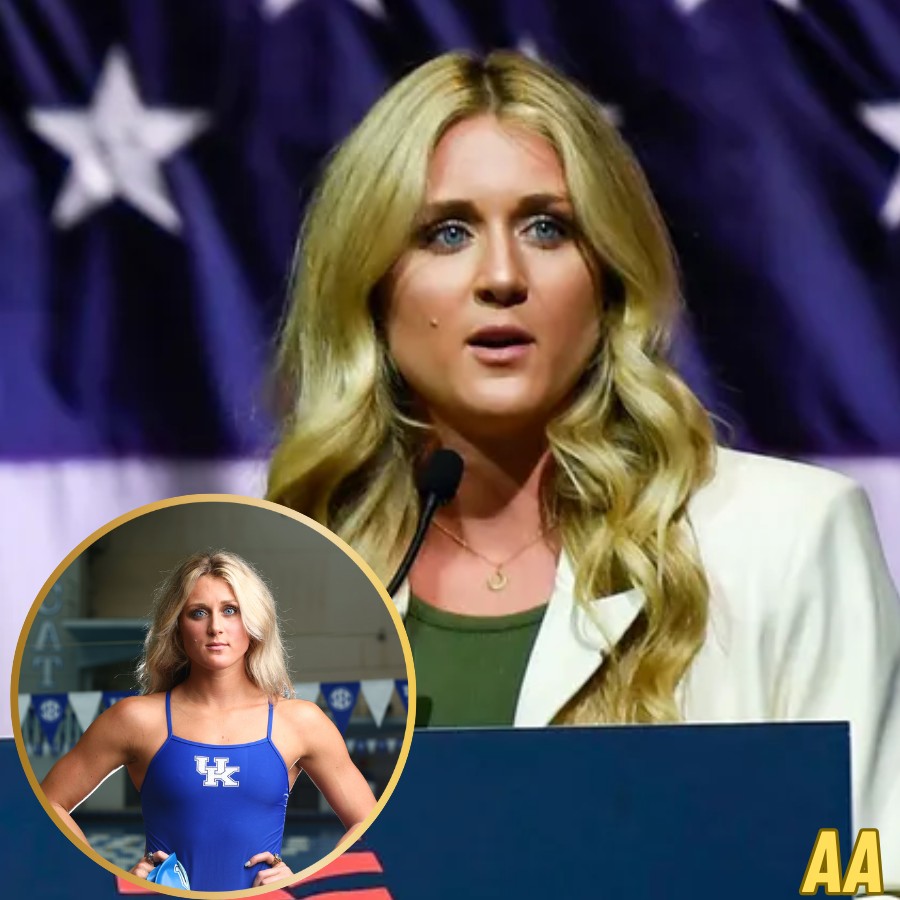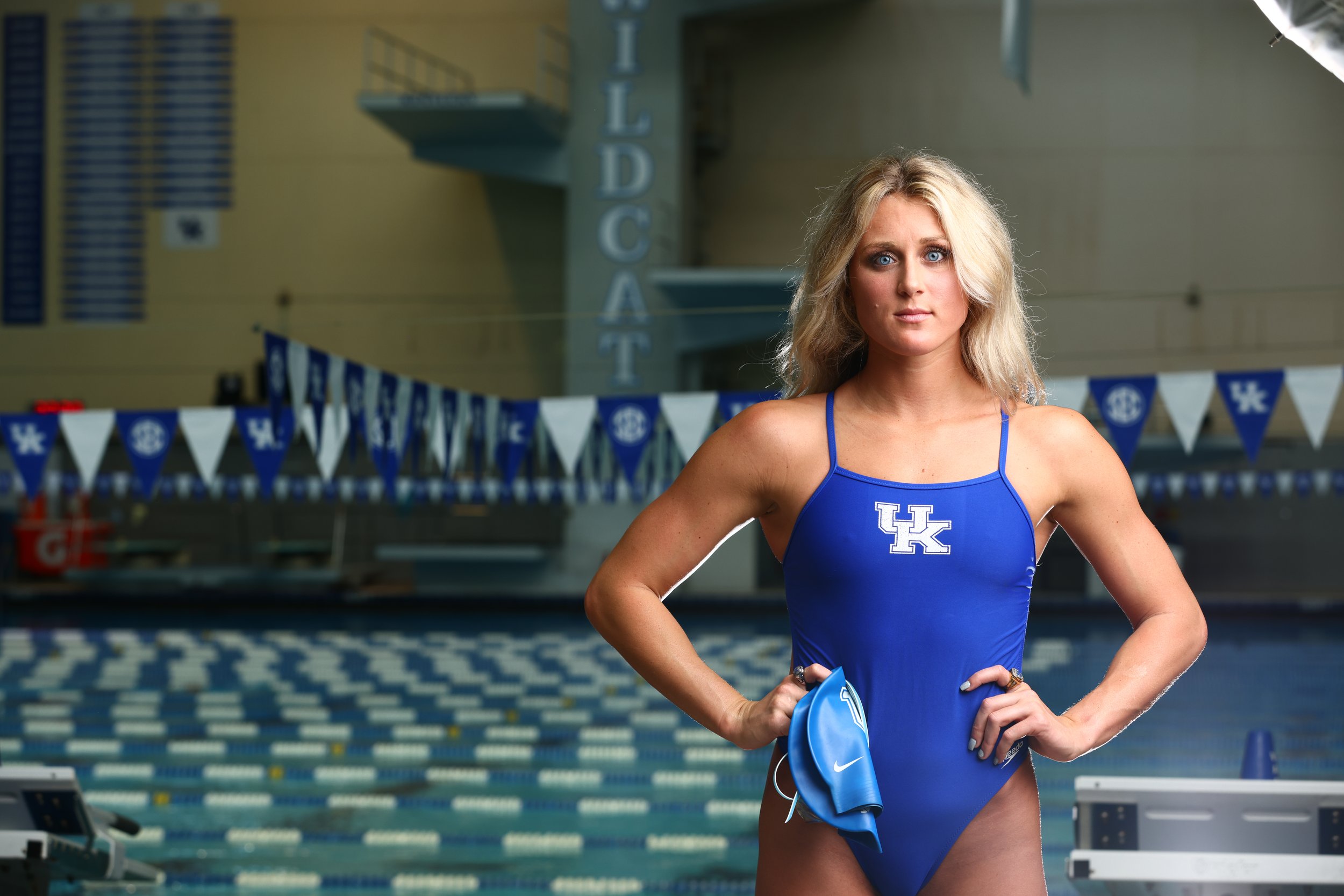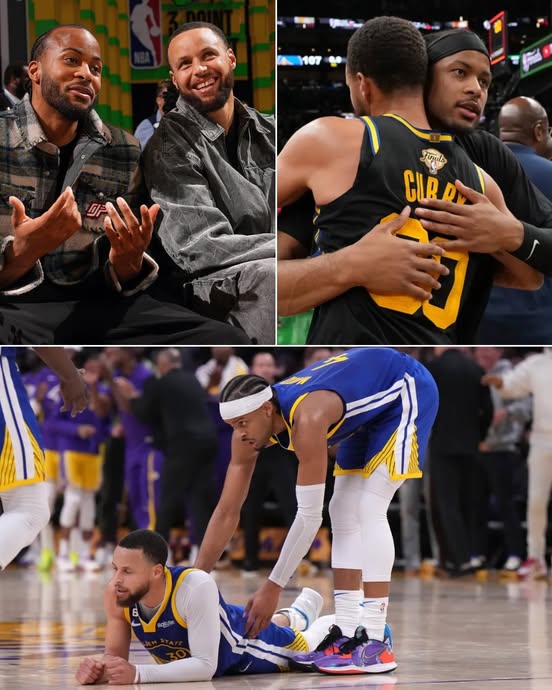Swimmer Riley Gaines Secures Historic $50 Million Settlement Against NCAA Over Medal Inequality – A Landmark Victory for Women Athletes and a Catalyst for Equality in Sports
In a groundbreaking development that is reverberating across the sports world, American swimmer Riley Gaines has emerged victorious in a historic lawsuit against the National Collegiate Athletic Association (NCAA), securing a $50 million settlement over issues of medal inequality.
This unprecedented legal win is not only a personal triumph for Gaines but also marks a watershed moment in the ongoing struggle for fairness and equality in women’s sports.
The case has galvanized athletes, advocates, and organizations nationwide, igniting a powerful movement demanding lasting change in the treatment of female athletes.
Riley Gaines’ Courageous Stand for Equality

Riley Gaines, a former University of Kentucky swimmer and celebrated NCAA All-American, has been a vocal advocate for women’s rights in athletics.
Her legal battle began after she and numerous other female athletes raised concerns about unequal treatment, particularly in how medals and recognition were distributed at collegiate competitions.
Gaines argued that the NCAA’s practices disadvantaged women, undermining the principles of Title IX and the spirit of fair competition.
Her willingness to challenge a powerful institution like the NCAA was both bold and risky. Many athletes and commentators viewed her actions as a courageous stand against systemic inequality.
Gaines’ determination to pursue justice, even in the face of significant opposition and public scrutiny, inspired countless others to share their own stories and demand change.
The Legal Battle and the $50 Million Settlement
The lawsuit, filed in federal court, alleged that the NCAA’s policies resulted in unequal opportunities and recognition for female athletes, particularly in high-profile events where medal distribution was at stake.
Gaines and her legal team presented compelling evidence of disparities in how medals were awarded, the resources provided to women’s sports programs, and the overall treatment of female athletes compared to their male counterparts.
After months of legal wrangling, negotiations, and intense media attention, the NCAA agreed to a $50 million settlement.
The agreement not only provides financial compensation to affected athletes but also includes a commitment from the NCAA to review and reform its policies to ensure greater equity in the future.
Legal experts and sports historians have hailed the settlement as a landmark victory, setting a precedent that could influence similar cases across the country.
The sheer size of the settlement underscores the seriousness of the issues at stake and the NCAA’s acknowledgment of the need for meaningful reform.
A Ripple Effect: How Gaines’ Victory Sparked a Movement
Riley Gaines’ triumph has had an immediate and far-reaching impact. Social media platforms lit up with messages of support from athletes, coaches, and fans.
Advocacy groups for women’s sports praised Gaines for her bravery and leadership, calling the settlement a “turning point” in the fight for gender equality.
Within days of the announcement, several universities and athletic conferences began reviewing their own policies related to medal distribution, resource allocation, and support for women’s sports programs.
The NCAA, under mounting pressure, announced the formation of a task force to address ongoing concerns and to implement the reforms outlined in the settlement agreement.
Prominent athletes, including Olympic champions and professional sports figures, publicly credited Gaines with inspiring them to speak out about their own experiences with inequality.
Her story has become a rallying cry for a new generation of athletes determined to ensure that women receive the recognition and opportunities they deserve.
The Broader Context: Title IX and the Ongoing Struggle for Equality
Gaines’ lawsuit and its outcome are the latest chapter in the long history of the fight for gender equality in sports.
Title IX, the landmark federal law passed in 1972, prohibits discrimination on the basis of sex in any education program or activity receiving federal financial assistance.
While Title IX has led to significant progress, many experts argue that gaps and challenges remain, particularly in the realm of college athletics.
The issues raised by Gaines—unequal medal distribution, disparities in resources, and lack of recognition—reflect broader systemic problems that continue to affect female athletes at all levels.
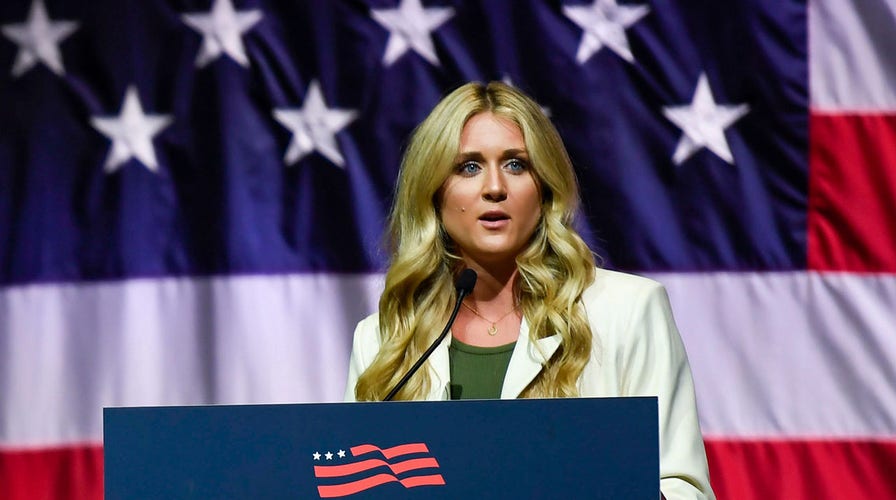
The $50 million settlement is a powerful reminder that the struggle for equality is ongoing and that meaningful change requires vigilance, advocacy, and, when necessary, legal action.
Voices from the Sports Community
In the wake of the settlement, voices from across the sports world have weighed in on the significance of Gaines’ victory.
Billie Jean King, tennis legend and longtime advocate for women’s rights, praised Gaines for her “unwavering commitment to fairness,” noting that “her courage has opened doors for countless women who follow in her footsteps.”
Current and former NCAA athletes have shared their own experiences with inequality, expressing hope that the settlement will lead to lasting change.
“For too long, we’ve been told to accept less,” said one collegiate basketball player. “Riley showed us that we don’t have to stay silent. We can demand better.”
Looking Ahead: The Path to Lasting Change
While the $50 million settlement is a monumental achievement, advocates stress that it is only the beginning. The reforms promised by the NCAA must be implemented transparently and effectively to ensure that female athletes receive the recognition, resources, and respect they deserve.
Gaines has indicated that she will continue to advocate for women’s rights in sports, using her platform to push for broader changes at every level of competition.
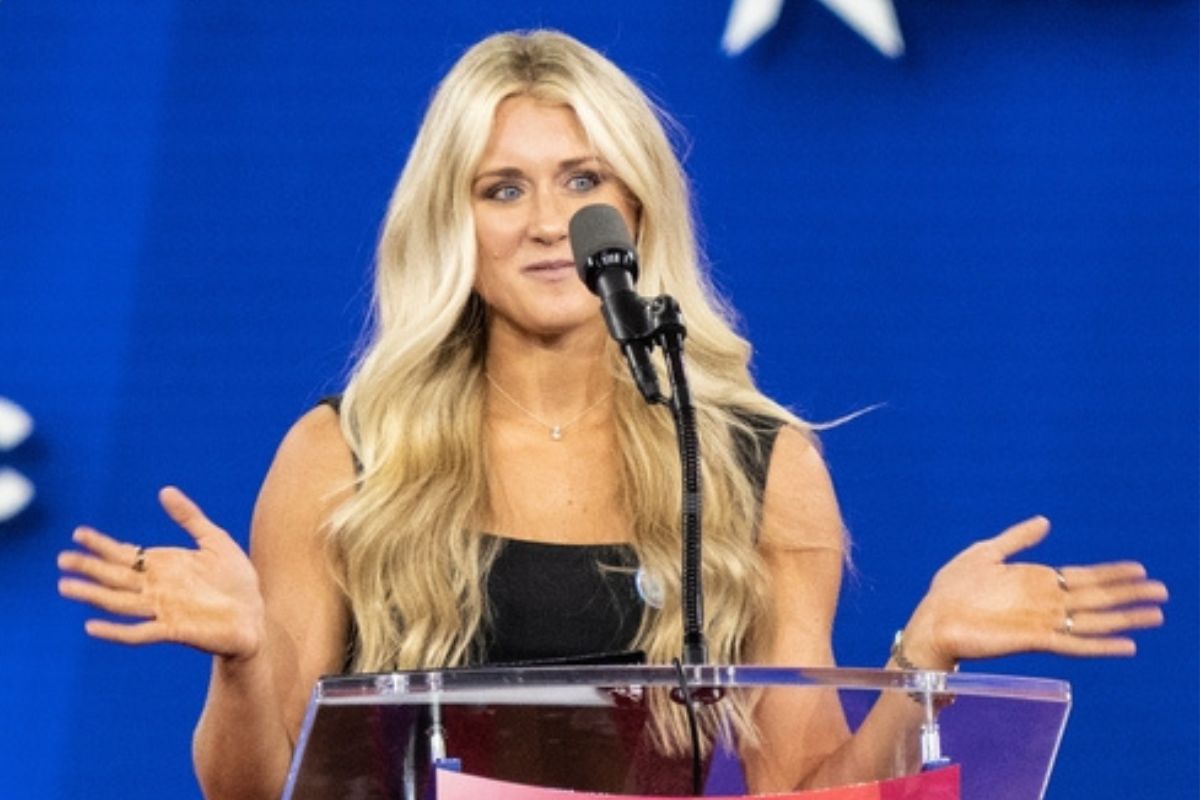
Her victory serves as both an inspiration and a challenge to institutions across the country to uphold the principles of fairness and equality.
Conclusion: A Defining Moment for Women in Sports
Riley Gaines’ historic victory against the NCAA is more than just a legal triumph—it is a defining moment in the ongoing quest for gender equality in sports.
By standing up for herself and her fellow athletes, Gaines has ignited a movement that promises to reshape the landscape of collegiate athletics and beyond.
As universities, organizations, and governing bodies take note, the message is clear: the era of inequality must end, and the time for true fairness and respect for women athletes is now






